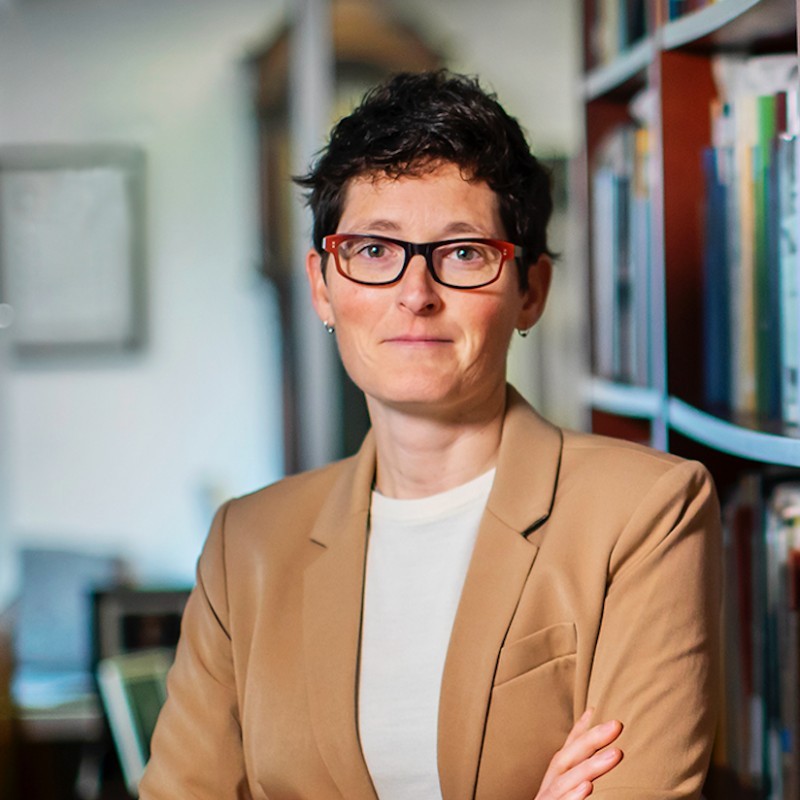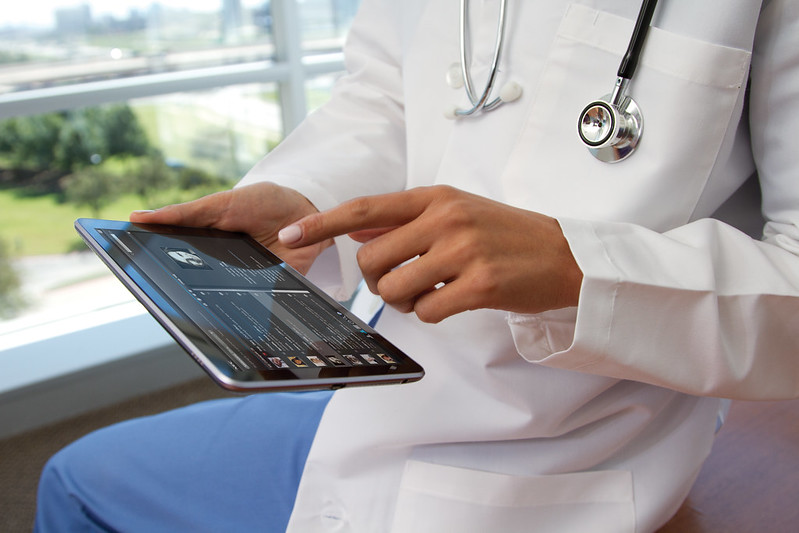But with unequal access to digital tools and burned out hospital staff, the cracks in this plan showed themselves. Despite challenges, what do we know now about how technology can aid in healthcare innovation?
It’s a question we posed to several tech experts at a recent stakeholder chat supported by Verizon 5G. Technical.ly gathered members of Baltimore, DC and Philadelphia’s healthtech and medtech communities to discuss this evolution, including the benefits and challenges to building in their respective cities, and challenges brought on by the pandemic. We also wanted to hear about the ways technology was making healthcare more effective in 2022.
Anthony Wehbe of Sena Health, a tech-enabled solution to bring healthcare to people in their homes, said that he experienced a lot of silos while working as a hospital executive at Jefferson Health. He aimed to break those down by bringing care into the home with his 2020-founded startup.
Although Wehbe works in Philadelphia, one of the biggest healthcare markets in the country, he said it’s been hard to partner with large medical organizations. Hospitals often look inward to solve problems, creating teams or tools themselves instead of partnering with startups that are building specific tech solutions.

Now I have smaller health systems that are clients … that see the value in this,” Wehbe said. “I think there’s a shift happening. It’s the reason I left.”
It’s a challenge Smitha Gopal, a Baltimore-based founder behind healthcare software platform Rendia, also faces. Every city has its pros and cons, she said, but established healthcare hubs like Baltimore and Philly might face more competition.
While the pandemic put much of the world on pause, the science and healthcare communities didn’t have that experience. Michelle Ottey, the managing director of CIC Labs + Innovation Campus in Philadelphia, said that while their coworking spaces went quiet in the spring of 2020, the labs never stopped work. (Life sciences is a “physical industry,” we’ve heard.) And the pandemic activated the use of hybrid events and work: While remote options started as a necessity, the option of hosting events either IRL or virtually have become a positive for accessibility and collaboration.
Elizabeth Tikoyan is the Fairfax-based founder of tech-enabled network Healp — think “Bumble BFF that connects people with the same health issues,” she said. Before the pandemic, she had to constantly explain what she was creating, or why there was a need for online communities of chronic illnesses. Now, her platform needs much less introduction, she said.
“A lot of people don’t know that a lot of these chronic health issues, there’s no cure,” Tikoyan said. “So a lot of these people are looking for the next best thing — what are supplements or dietary changes people are trying? People really understood what we were creating and they started taking us seriously when we entered rooms” after the pandemic started.

Marion Leary, director of innovation at University of Pennsylvania’s School of Nursing, said she believes technology can make healthcare more effective if it’s being created by those who will use it on the frontlines.
“In healthcare, nurses touch every device that gets used on a patient,” she said. “We need to have healthcare workers creating technology at the beginning. And we also drop the ball when we don’t involve patients.”
Emily Durfee, a DMV-based startup investor by way of Healthworx, summed up much of the event’s conversation by reiterating her firm’s stance on tech’s place in healthcare: If it’s not designed with everyone in mind, the technology or product is likely useless.
“There’s misunderstanding that technology is the solution, versus is a tool towards a solution,” Durfee said. “I think that difference is really important, and that’s the way we think about it, which is technology can improve equity and access to care. … It also can increase disparities because if folks don’t have access to the things that enable them to leverage the technology, it can make it even more deeply problematic.”







